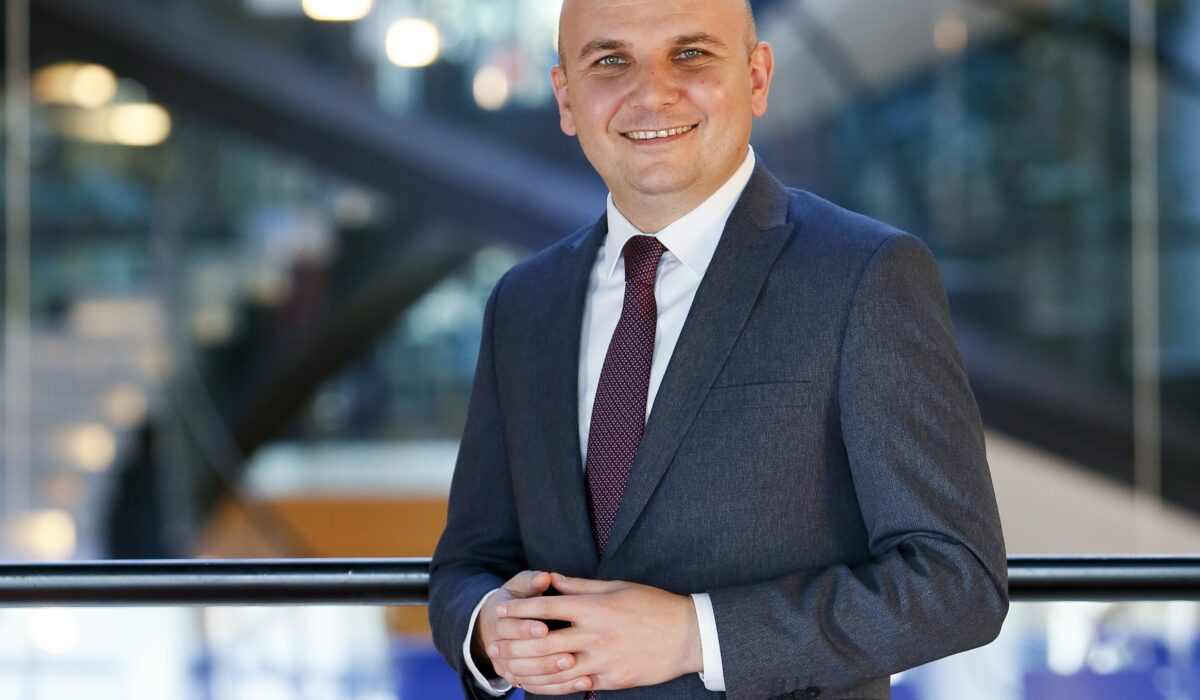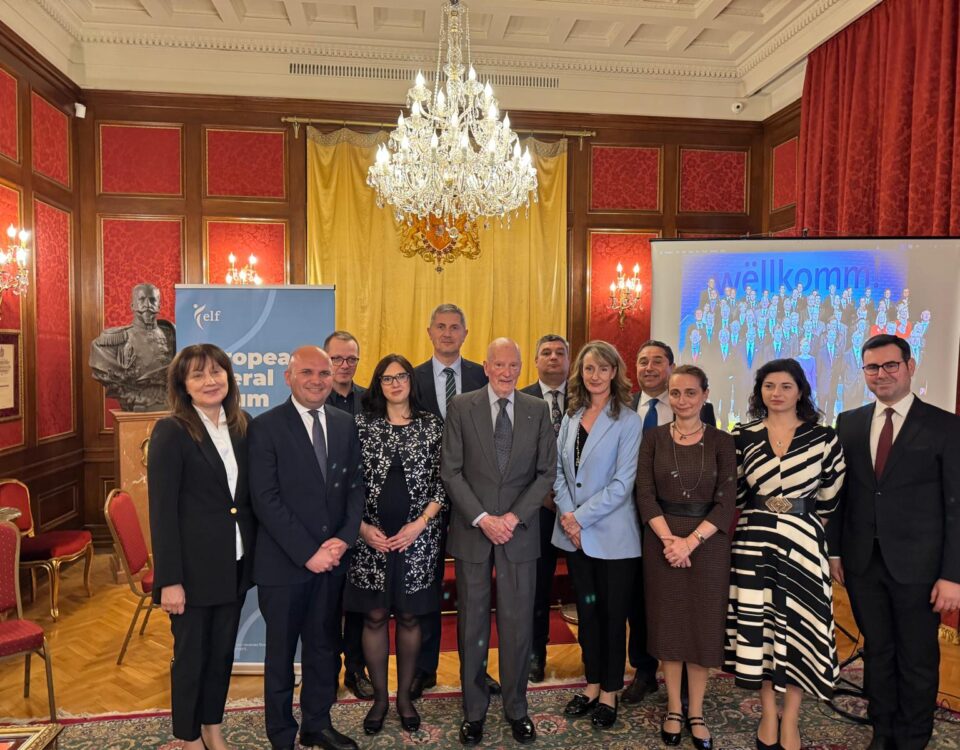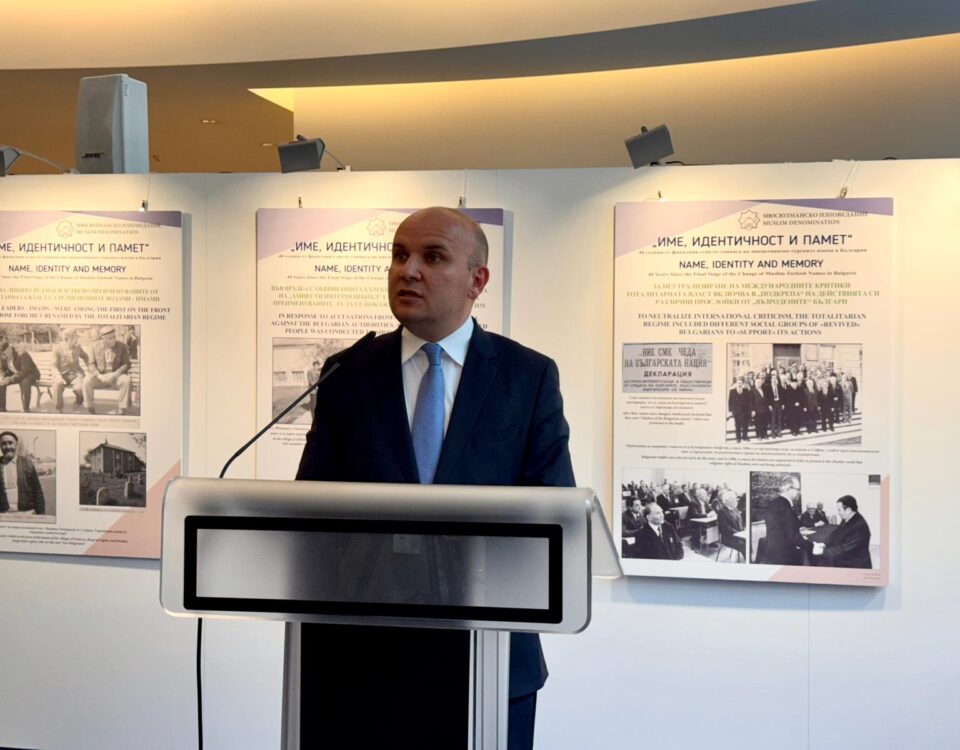
Kyuchyuk and Pendarovski: Only way for Bulgaria and North Macedonia is building trust and friendship
April 29, 2021
Kyuchyuk to Zaev: The connectivity between our two countries is the key to good neighborly relations
May 11, 2021* Raison d’être— is a French expression, the most important reason or purpose for someone or something’s existence
History teaches us that Europe has prospered when cooperation prevails over confrontation. This seemingly simple conclusion paved the way for Robert Schumann’s idea for the European project on May 9, 1950.
Thanks to the ideas of great Europeans like Schumann, we now realize that differences are our wealth. From a continent torn apart and ravaged by devastating wars, Europe has become a factor that sets world standards for democracy, human rights and freedoms, and the rule of law. And as Europeans, we have every right to celebrate the power of our values and ideas.
Who would have imagined that the Berlin Wall would not be able to withstand their power and that they would provide the basis on which our divided continent was united voluntarily and peacefully? Who can forget May 1, 2004 and January 1, 2007, when the Union welcomed the new Member States of Central and Eastern Europe?
Historical truth insists that the idea of a united Europe would not have been possible without the victory of the anti-Hitler coalition – led by Britain, the USSR and the USA. The end of the war is the end of both inhumane ideologies of the twentieth century – Nazism and fascism.
It is good for all of us, the citizens of a free Europe, to understand that denying Victory Day does not make Europe Day bigger, meaningful and important. However, if we leave for a moment the nostalgia for historical achievements and turn to today’s challenges and the future of the EU, we will see that the EU of the 21st century is very different. Expectations for it are much higher, and the solutions to global issues are much more complex. All the crises so far, including the recent crisis, have shown two main things – the need for political unity and the need for quick solutions. This inevitably raises the frontal question – can the EU be more united and faster in decision-making, understand more effectively, in the current legal framework given by the treaties? And the definite answer is – no, you can’t. And in general, the idea of a geopolitical union can become a distant chimera if the EU does not become a political union before then. In other words, the EU must find its new Raison d’être.
To a large extent, the Conference on the Future of Europe will try to lay the foundations for such a conversation. The most valuable thing about it is that it will be civil. The ideas will come from the citizens. And this in no way means that representative democracy will be replaced. On the contrary – it will be strengthened. And here I want even one step further – we need to consider how to institutionalize civic participation, not to include and exclude it to be “ad hoc”.Modern digital democracy gives huge opportunities for this type of inclusive participation of citizens. If this is not done, I hasten to say about the highest risk, namely the Conference to become a temporary political outlet civil resentment. This would confirm the strong sense of lack of representativeness and “visible or invisible” role of European elites.
The exercise of digital democracy and the subsequent involvement of the participants in the agora must give a platform and critical voices, including anti-European ones. This would be an important step towards building confidence in the project for a New Europe.
Да живее Европа! Long live Europe! Lang lebe Europa! Vive l’Europe!
Тази публикация е достъпна и на следните езици: Bulgarian




